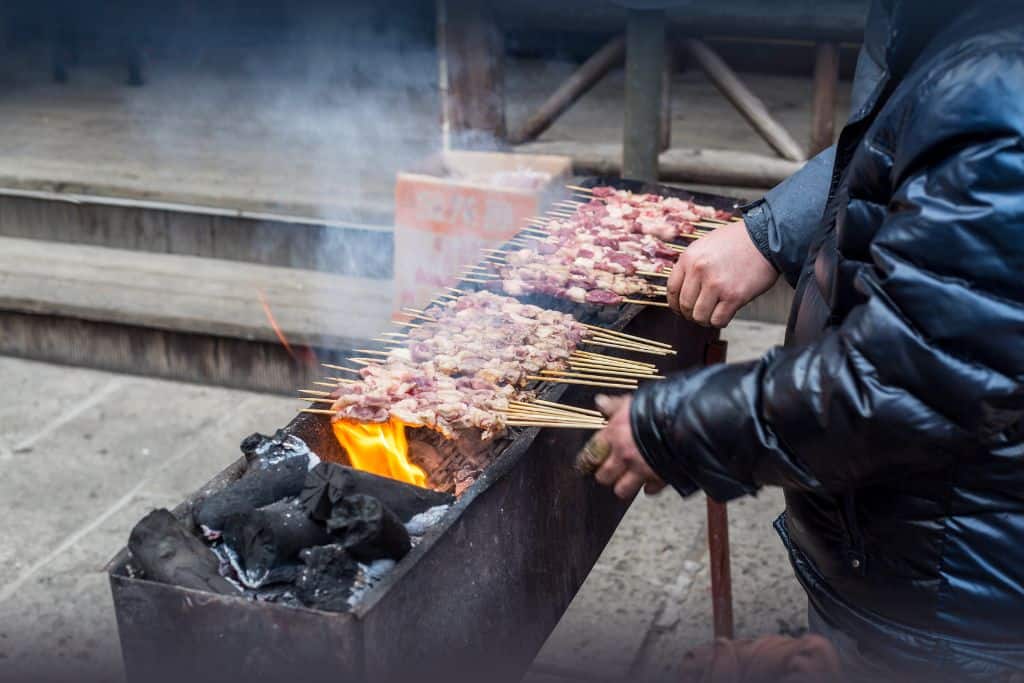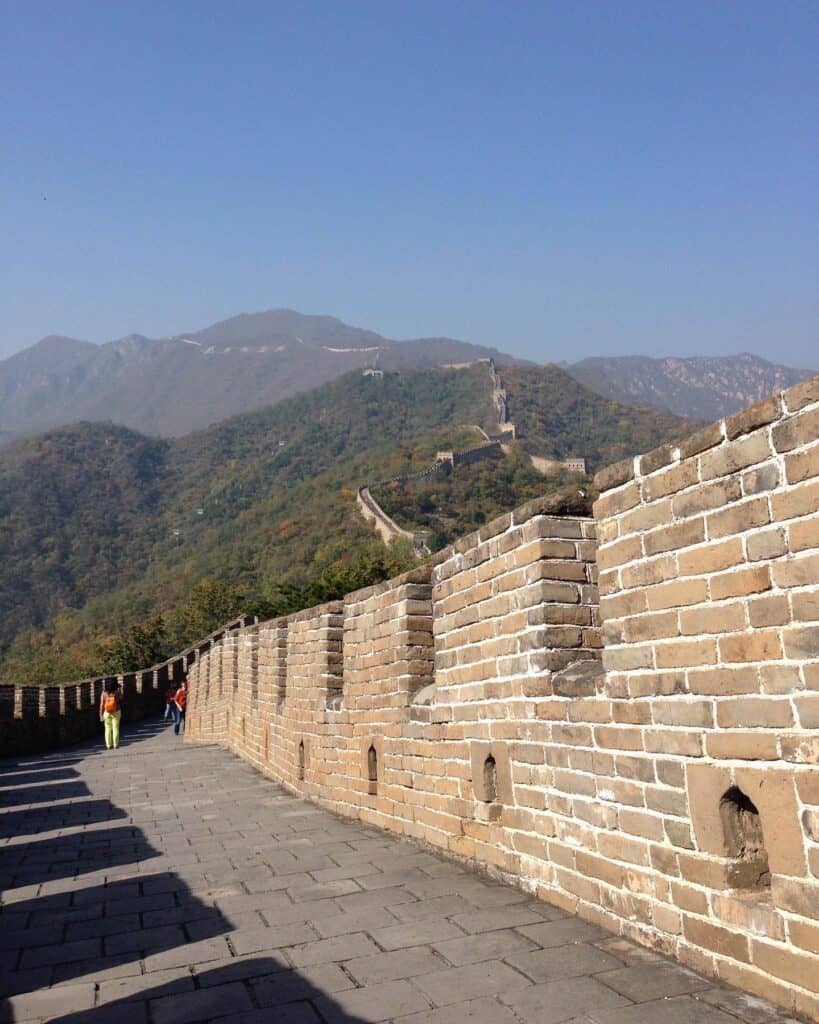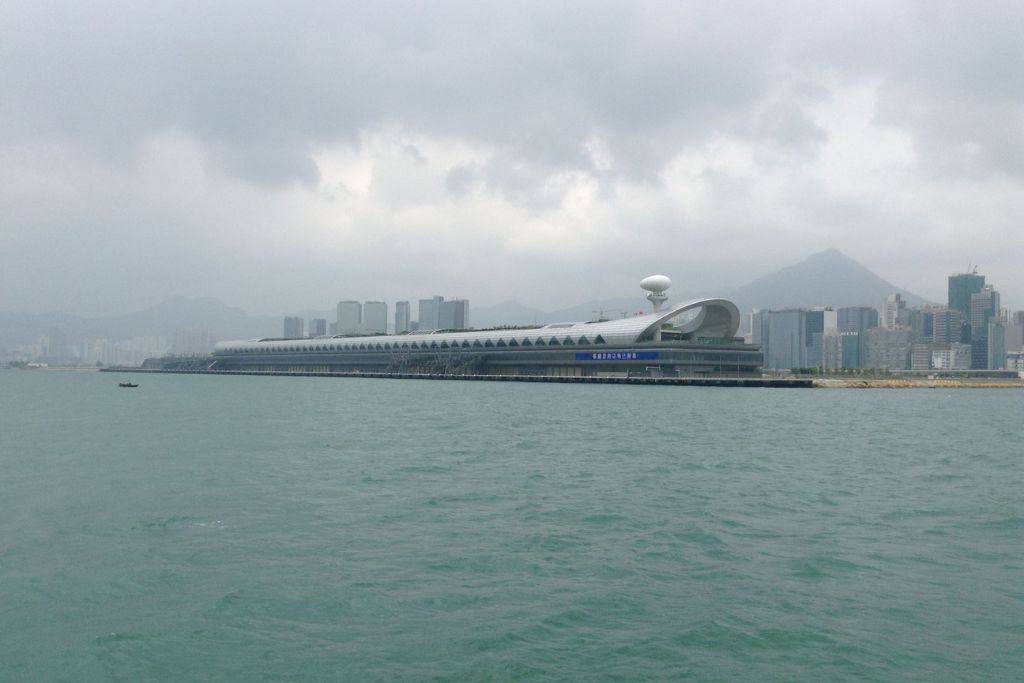Important Tips for Traveling to China
Are you looking for tips for traveling to China?
China is a vast and diverse country with a rich history, stunning landscapes, and a unique blend of ancient traditions and modern innovations. Tips for traveling to China can make your trip so much easier to manage.
It can also be a confusing tangle of red tape to work through to assure you’re following all the correct rules for visitors. Here are some first-time traveler tips for traveling to China to help you navigate your way.
The following categories cover the necessities to ensure you have what you need for your adventures in China.
- Travel Requirements
- General Tips
- Health and Safety Tips
- Transportation Tips
- Documentation Tips
- Environmental Awareness Tips
- Weather Tips
- Packing Tips
- Connectivity Tips
- Cultural Sensitivity Tips
- Food and Drink
Travel Requirement Tips for Traveling to China
China is a country that takes their documents very seriously. Do not try to bypass any of these official document requirements when traveling to China.
Passport Requirements
Your passport must be valid for at least six months beyond your intended date of entry into China. This is a strict requirement, so ensure your passport is up to date.

In your passport you should have at least two blank visa pages. These are necessary for the visa sticker and entry stamps. Even more space is required if your visa allows you to stay in China for a longer period of time.
When I lived and worked in China, my passport received a work visa and a residency permit for the specified time period of my contract.
Visa Requirements
China requires most foreign nationals to obtain a visa before entering the country. It’s essential to check the latest information on visa requirements and travel advisories, as policies may change. Preparing all necessary documents in advance will ensure a smooth travel experience to China.

The type of visa you need depends on the purpose of your visit. Here are the most common types of visas available.
Extra Health and Safety Tips for Traveling to China
These extra tips will provide more information to you while planning your trip to China.
Covid-19
As of now, China may require proof of COVID-19 vaccination, a negative PCR test, or other health documentation upon arrival. It is important to check current regulations closer to your travel date, as these requirements can, and do, change frequently.
Travel Insurance
While not mandatory, it is highly recommended to have travel insurance that covers medical expenses, or travel issues. This includes COVID-19-related treatments if you need to take a test.
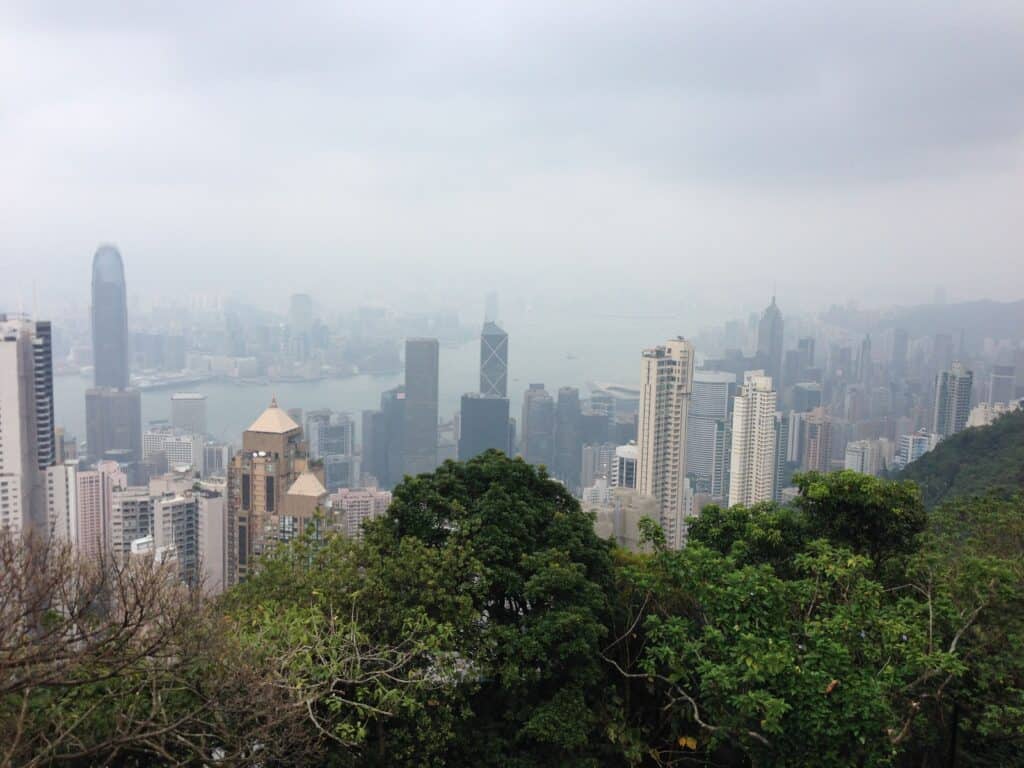
Special Administrative Regions
Hong Kong and Macau are parts of China, yet have different entry requirements. If you plan to visit these regions, check the specific entry requirements for each.
Application Process
You can apply for a Chinese visa at the Chinese Embassy or Consulate in your home country or through a visa service center authorized by the Chinese government.
Generally, visa processing takes about 4-5 business days, but expedited services are available for an additional fee. Problems with your application or a backlog of visa applications can delay the process to longer than 5 business days.
Check out more detailed information on the different visas required when you travel to China.
General Tips
Currency
The local currency is the Chinese Yuan (CNY), also known as Renminbi (RMB). Cash is still widely used, but mobile payment systems like Alipay and WeChat Pay are extremely popular. More about WeChat later in this post.

You can use your own bank card to top up the Alipay or WeChat Pay features as long as it’s an internationally accepted card.
Many shops, taxis, services, and even convenience stores use digital payments. Smaller shops and Cash is still preferred in smaller shops or outside of the big cities. When I lived in China I always tried to keep some cash on me.
Language Tips for Traveling to China
Mandarin is the official language, though regional dialects exist. English is not widely spoken outside major cities, so consider carrying a phrasebook or using a translation app. Google Translate can also be a lifesaver.
Learning Mandarin is difficult, and trying to read or write the Chinese characters is even harder. Try memorizing a few phrases to make your experience easier, and more memorable.

There are many phrasebooks or language learning apps to try out. Duolingo, Pimsleur, and Rosetta Stone are three you can check out. Many more can also be found online or in the App Store for your specific phone.
I have tried and used all three of these programs and all worked well for me.
Do your best, be patient, and if all else fails, pointing or hand gestures work wonders. Believe me, I have resorted to this several times during my time in China.
Bargaining
Bargaining is most common in markets, street stalls, and smaller shops, especially those selling souvenirs, clothing, electronics, and other goods aimed at tourists.
In larger department stores, supermarkets, and brand-name shops, prices are fixed, and bargaining is not appropriate.
Show interest in the item but avoid showing too much excitement. This keeps the seller guessing about how much you’re willing to pay. Politely ask, “Zhège duōshǎo qián?” (这个多少钱?) which means “How much is this?”
The initial price given by the seller is often inflated, especially if they perceive you as a tourist.
Be willing to walk away if the price is not acceptable to you. This is a friendly negotiation and it’s seen as a fun part of the shopping process. While it’s okay to negotiate, always be respectful and remember that a small amount to you could mean more to them.
Bathrooms
Many people have heard about the Chinese squat toilet and you will probably come across a few in your explorations. Most larger hotels and restaurants will have at least one western-style toilet. The others are probably squatties.

If you’re able to get down easily to use the squatty, then go right ahead. I can usually get low enough, but it can be difficult for me depending on how my ankle arthritis is that day.
Make sure to always have tissues or some kind of paper with you. Not all bathrooms, even western-style toilets, will provide toilet paper. Be prepared! Packs of wipes and tissues lived in my purse and my backpack whenever I left my apartment.
Health and Safety Tips for Traveling to China
Vaccinations
When traveling to China, it’s essential to ensure you’re up-to-date with routine vaccinations and consider additional vaccines based on your itinerary, planned activities, and length of stay.
The CDC recommends vaccinations for Hepatitis A and Typhoid for most travelers, as you can contract these through contaminated food or water.
Depending on the region you’re visiting, your activities, and how long you’ll be staying, you might also consider Hepatitis B, Japanese Encephalitis, Rabies (especially if you plan on spending a lot of time outdoors or in rural areas), and Malaria prevention if traveling to rural areas.
Drinking Water
It’s generally not safe to drink tap water in China. Tap water is not treated to the same standard as in many Western countries and may contain harmful bacteria and contaminants.

Stick to bottled water and avoid ice and unwashed produce. Take the necessary precautions to avoid a bad belly.
Traveling Solo
China is generally considered a safe destination for solo female travelers, but it’s always wise to take certain precautions. I never felt unsafe or had any problems during my year living there or my 3-week visit years later.
- Stay in Reputable Accommodations
- Keep Personal Belongings Secure
- Learn Basic Mandarin Phrases
- Dress Modestly
- Be Cautious with Taxis and Ride Shares
- Trust Your Instincts
To learn more details about staying safe, check out this post about safety tips for traveling to China.
Transportation Tips
There are many ways to get around in China. Major cities have extensive subway systems that are affordable and efficient. Buses and taxis are also widely available, but be aware that few taxi drivers speak English, so have your destination written in both English and Chinese.
Buses
The bus is another popular mode of transportation in China, offering a flexible and often economical way to travel between cities, towns, and even rural areas. Most bus routes, stops, and announcements are only in Chinese, which can pose a challenge for non-Mandarin speakers.
However, many travel apps can help you navigate bus routes. Once you know where in China you are traveling to, search online for an app for assistance with bus routes.
City Bus
City buses are widely available in urban areas and provide extensive coverage of both city centers and suburban areas. They can be a great way to reach places not served by the subway.

Bus fares are very affordable, usually ranging from 1 to 3 RMB (about $0.15 to $0.45 USD). Payment can typically be made with cash, a transportation card (like those used for subways), or mobile payment apps like WeChat Pay and Alipay.
Big city buses tend to run frequently, especially on major routes. However, buses can be less reliable and slower than subways due to traffic congestion, especially during peak hours.
Long Distance Bus
Long-distance buses connect cities, towns, and even rural areas. They are often the best or only option to reach remote destinations not served by trains or flights.
Tickets can be purchased at bus stations, travel agencies, or online through various Chinese travel apps. It’s advisable to buy tickets in advance, especially during holidays or peak travel seasons.
Long-distance buses vary in comfort, with some offering basic seating similar to coach seating on airplanes, while others provide more space and amenities like air conditioning and onboard toilets.
While generally safe, it’s important to choose reputable bus companies, especially for long-distance routes. Bus drivers can sometimes drive aggressively, and road conditions may vary, especially in rural areas.
Sleeper Bus
Sleeper buses are designed for long overnight journeys and are equipped with bunk-style beds instead of seats. They are commonly used for overnight trips between cities or to reach remote areas without train service.
Make sure to book the entire bunk for yourself when purchasing tickets. You do not want to end up sharing a bunk with a stranger. Also make sure to reserve a lower bunk so you don’t have to climb over anyone else to reach your place.
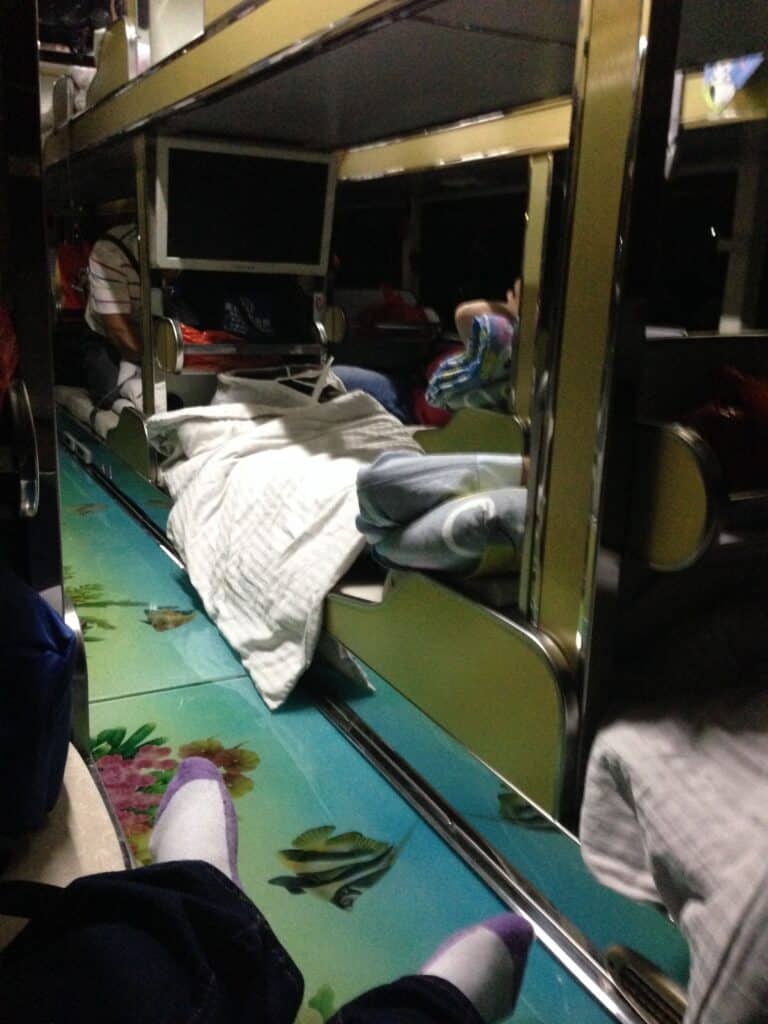
The buses usually have two or three rows of bunk beds (upper and lower berths), with narrow aisles between them. The beds are typically quite compact, so it’s good to manage your expectations regarding comfort.
A thin mattress, blanket, and pillow are typically provided, but it’s a good idea to bring your own travel pillow and a lightweight sleeping bag or liner for extra comfort and hygiene.
Most sleeper buses do not have onboard toilets, but they make scheduled stops at rest areas. Some more modern sleeper buses may offer amenities like air conditioning, Wi-Fi, or charging outlets, but these are not guaranteed.
Click here to read about my experience on the sleeper bus from Yangshuo to Guangzhou.
Subway
The city subway systems in China are amazingly efficient and easy to use. Signs are in Chinese and also written out in English letters, so following signs and directions are easy. If I could manage it, and I am not even a city girl, then you can do it too.

Major cities, and even some smaller cities, have modern, clean, regularly-scheduled trains covering most points in the area. The costs are affordable, ranging from $0.40 – $1.25 USD in most areas. It is the best way to get around the city.
I purchased a monthly card that could be preloaded with set amounts and refilled when needed. Refills could be done through machines at 7-11 or online.
One of the greatest things about the subways are that many of them have shops, restaurants, and even some full-fledged malls underground. I was stunned at how beautiful and clean the whole area was. It puts American subways to shame.
Trains
China’s high-speed train network is an excellent way to travel between cities. Most signs have the names in English letters as well as traditional Chinese characters.

It’s advisable to book tickets in advance, especially during peak travel times. Check schedules and try to avoid national Chinese holidays. Everyone, and I mean mostly everyone, travels during the national holidays so the trains, or other public transportations will be extremely crowded.
Smaller, more local, train stations may not have people working the counters that speak much English. Ask a Chinese speaking friend or colleague to help you book tickets and explain when and where you may need to make changes.
On a ride from Guangzhou to Beijing back in 2014, nobody on the train spoke English. I knew I was getting off at the end of the line, but I couldn’t ask any questions or get directions easily. Be prepared to slow down, assess your situation, and ask for help if needed. Translation apps work wonders here!
Taxis and Ride-Sharing
Make sure to use official taxis that charge the correct fee by using the meter. Do not let them tell you it’s fine to get to your destination without it. You may find yourself being charged a ridiculous amount if the meter is not used. Taxis are not expensive and worth getting an official one charging a fair rate.

Didi, which is the Chinese version of Uber, is extremely easy to use through their app. The prices are good but you may need some level of Chinese to use the app. Drivers often call to confirm your exact location and most of them do not speak English at all.
I often traveled by Didi when I lived in China. My Chinese was limited, to say the least, and I couldn’t understand any drivers. Asking one of my Chinese friends to order the Didi, or wait with me until they arrived, helped with them understanding directions. This is also where writing the address in English and Chinese characters will again help you immensely.
Bicycles and E-bikes
In some cities, renting a bike or e-bike can be a convenient way to explore. They are unlocked with using an app, generally through WeChat. I’ll share more about this amazing app in the Connectivity part of this post.
If You Have Trouble With Transportation
If you have any trouble getting tickets, understanding a bus schedule, or ordering a ride-share, ask someone local or get assistance from your accommodation.
Accessibility Tips for Traveling to China
Knowing some basic Mandarin phrases related to accessibility needs can be incredibly helpful. Phrases like “wheelchair” (轮椅 lúnyǐ), “elevator” (电梯 diàntī), and “help” (帮助 bāngzhù) can go a long way.
If possible, bring portable mobility aids like foldable wheelchairs or travel scooters, as they are easier to maneuver in crowded places.
Airlines
Most airlines operating in China offer special assistance for passengers with disabilities. When booking your flight, it’s a good idea to notify the airline of any special needs you have, such as wheelchair assistance or help boarding the plane. Do this ahead of time.
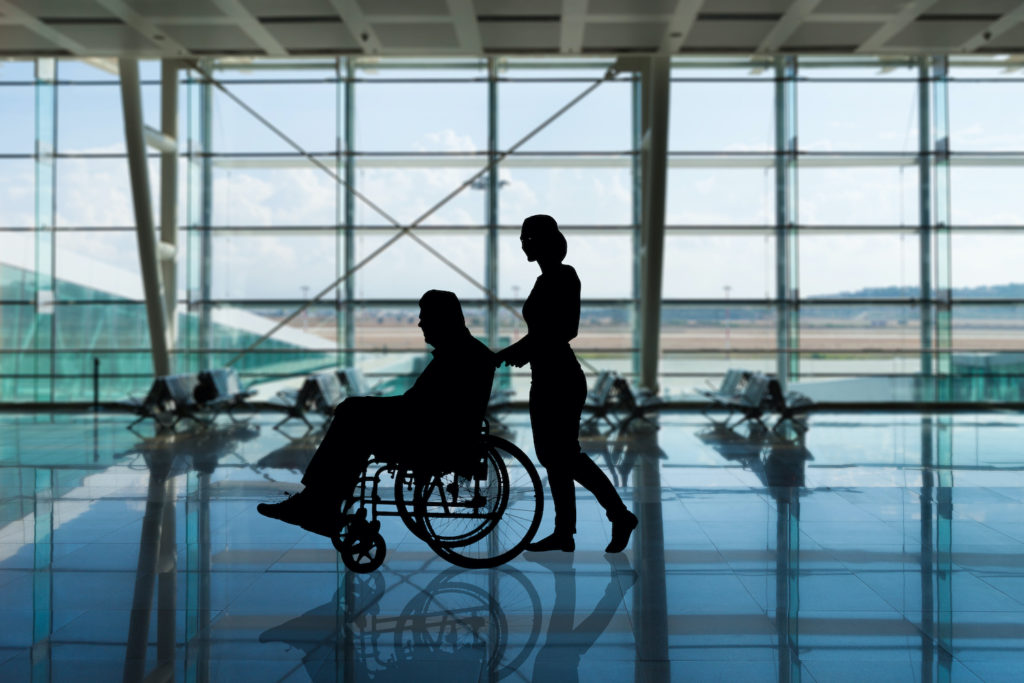
I personally highly recommend precooking any wheelchair assistance in the Chinese airports. On one trip I did not prebook and when asking for a wheelchair at the airport, was told I had to bring my own. This was in the Shanghai International Airport. Making arrangements with the airline before my flight would have eliminated this problem.
Trains
High-speed trains in China are a great option for accessible travel. When booking tickets, specify that you require an accessible seat. Certain trains have wheelchair-accessible seating and bathrooms to make it easier for you.
Subways
Subway systems in larger cities like Beijing, Shanghai, and Guangzhou are increasingly becoming more accessible. They typically have elevators, tactile paving for the visually impaired, and audible announcements.

Just be aware that the city subways can be very congested. Although you can get a wheelchair or a walker into the subway, more people packing in might make it uncomfortable. Claim the handicap seats that are available.
Buses
In larger cities, some buses are equipped with low floors and designated spaces for wheelchairs. However, these are not available on all routes, so it’s best to check in advance.
Taxis or Ride-Shares
These are less likely to be completely accessible. In some of the largest cities, you may be able to find accessible cars, but pre-booking is highly recommended. If not using a wheelchair, then most taxis and ride-shares have plenty of room and are comfortable enough for getting around.
Documentation Tips for Traveling to China
If there’s one country I have traveled to that adheres to proper documentation, it is China. They take their paperwork very seriously.

Visa for Different Purposes
China has a specific visa for specific purposes. My best word of advice is to get the proper visa for the real reason you are there.
Do not, I repeat, do not try and start working there on a tourist visa. It is against the law.
Keep a Copy of Passport With You
Although many websites state to keep your physical passport with you, there is always the possibility of losing it in some way. Keep your actual passport locked up in your accommodation and take a printed version with you.
If ever someone asks to see your passport, show them the paper version. In the rare instance they want to see the real thing, then either have them go with you to your hotel or tell them you will bring it to be checked over. I lived there for a year and never had to produce my passport for anything other than traveling.
Follow All Official Rules
Paperwork, and having the correct documentation, is almost a sport in China. If you make sure you have what you need and do not intentionally break any laws, then you’ll have no problems in China.
The country is simply amazing to explore, and once past the paperwork and red tape, you will enjoy it immensely.
Environmental Tips for Traveling to China
Be mindful of your environmental impact, especially when visiting natural sites and heritage areas. Follow local guidelines and dispose of waste properly.
Here are some tips to reduce your impact on the environment while you travel throughout China.
Use Public Transport and Bike-Sharing
China has an extensive public transportation network, including subways, buses, and high-speed trains, which are eco-friendly and efficient. Encourage visitors to use these options instead of taxis or private cars.

Many cities in China have bike-sharing programs. Riding a bike not only reduces carbon emissions but also provides a great way to explore local neighborhoods.
Carry a Reusable Water Bottle With You
Tap water in China is generally not safe to drink, so bottled water is widely sold. To reduce plastic waste, visitors can bring a reusable water bottle with a built-in filter. Many hotels and public places offer filtered water stations.
Choose Eco-friendly Accommodations
Suggest staying at hotels that have green certifications or sustainable practices, such as energy-efficient lighting, water-saving fixtures, and recycling programs. Some hotels also support local communities by sourcing food and products locally.
Limit Single-Use Plastics
Encourage travelers to carry reusable shopping bags, cutlery, and straws. Street food is popular in China, and many vendors still use plastic containers and bags, so having their own reusable items can significantly reduce plastic waste.
Respect Local Wildlife and Natural Habitats
Remind visitors to avoid activities that exploit animals or damage natural habitats, such as visiting places where animals are kept in poor conditions or buying products made from endangered species.
Support Local and Sustainable Businesses
Encourage shopping from local markets, artisans, and sustainable businesses that focus on environmentally friendly products and practices. This supports the local economy and reduces the carbon footprint associated with shipping goods.
Travel During Off-Peak Season
Traveling during less crowded times can help reduce the pressure on popular tourist destinations and minimize environmental degradation caused by over-tourism.
Weather Tips For Traveling to China
China has a wide range of climates in 8 specific weather areas. This ranges from the cold northeast to the sub-tropical weather down south.
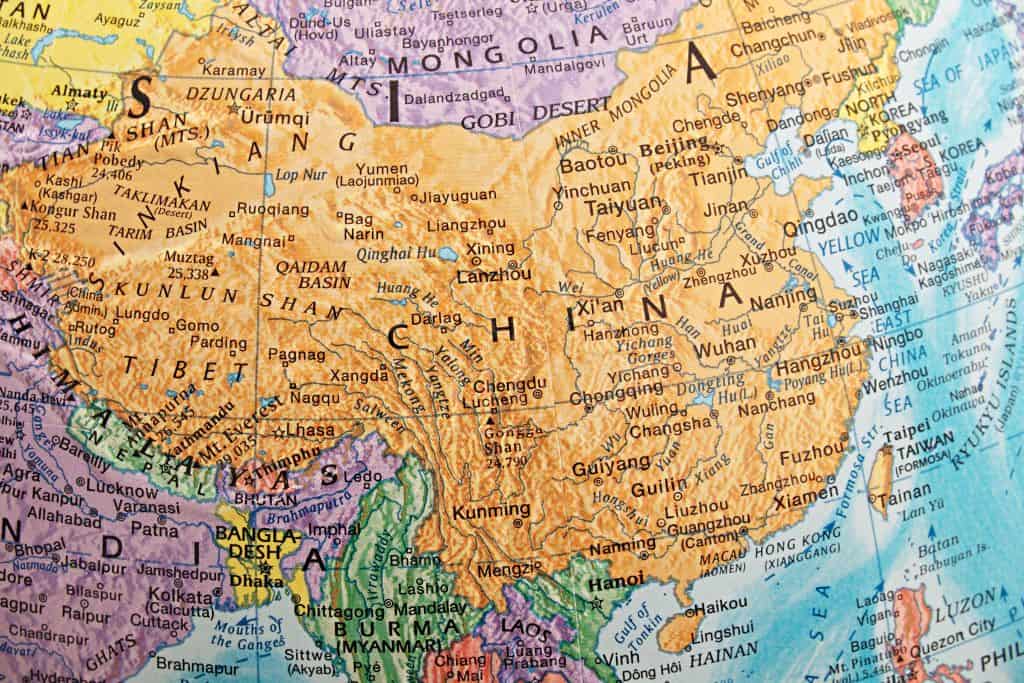
Continental Climate
Northeast China is comprised of the areas of Heilongjiang, Jilin, and Liaoning.
This area has a continental climate. Winters are extremely cold and long, with temperatures often dropping well below freezing. Summers are warm to hot and short, with moderate rainfall. This region experiences distinct seasonal changes.
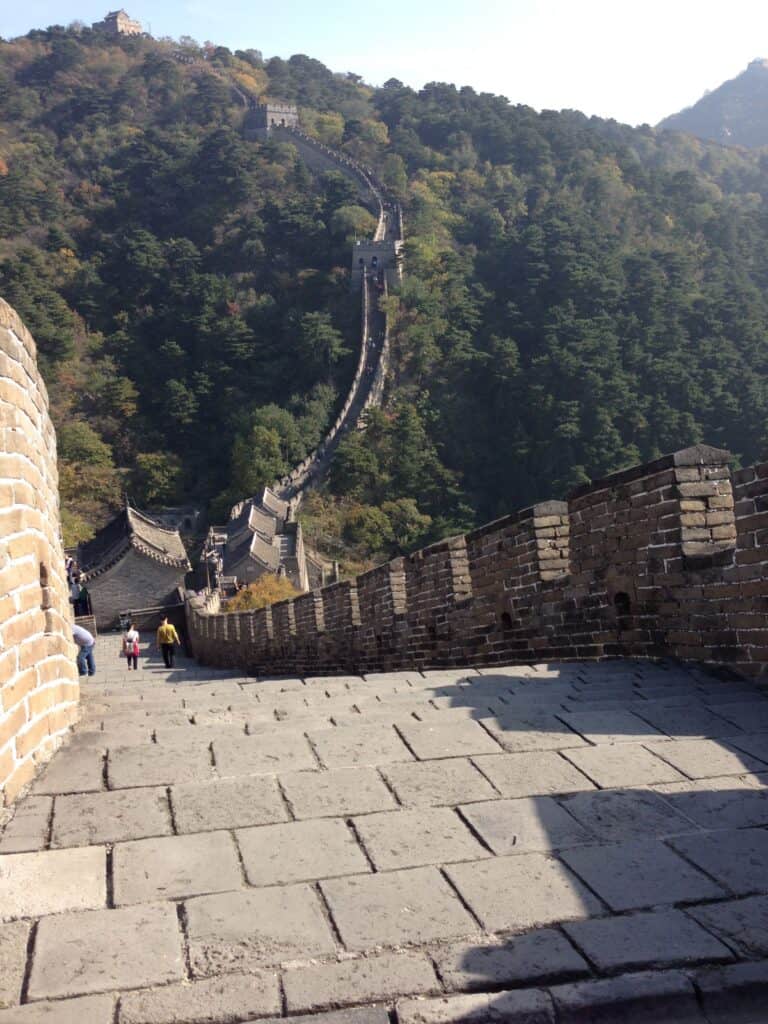
North China covers Beijing, Tianjin, Hebei, Shanxi, and Inner Mongolia.
They have a temperate continental climate. Winters are cold and dry, often with strong winds and occasional snowfall. Summers are hot and humid, with most of the annual rainfall occurring during this season. Spring and autumn are brief but pleasant.
Subtropical Climate
East China, which is Shanghai, Jiangsu, Zhejiang, Anhui, Fujian, and Jiangxi has a subtropical monsoon climate.
This area has mild winters with occasional cold snaps, and hot, humid summers. East China experiences heavy rainfall during the summer monsoon season, especially from June to September, sometimes leading to typhoons along the coast.
South China is the area of Guangdong, Guangxi, and Hainan. This is where I lived when I was teaching ESL in China in Guangzhou.

The South China area has a tropical and subtropical climate. Warm and humid year-round, with hot and rainy summers. Winters are mild and short, but still relatively humid. This region is prone to typhoons, particularly between July and September.
Central China, which is Hubei, Hunan, Henan, Chongqing, and Sichuan has a subtropical monsoon climate.
Summers are hot and humid, sometimes with temperatures exceeding 40°C (104°F). Winters are cold and damp, particularly in the Sichuan Basin, but not as harsh as in the north. Rainfall is abundant in summer, with frequent thunderstorms.
Subtropical to Alpine Climate
Southwest China, the areas of Yunnan, Guizhou, and Tibet has a climate that varies significantly due to topography. It ranges from subtropical in Yunnan and Guizhou to alpine in Tibet.
In Yunnan and Guizhou, the weather is mild year-round, with a wet summer season and a dry winter.
Tibet has a high-altitude climate with cold winters, mild summers, and significant temperature variations between day and night. Rainfall in Tibet is mostly concentrated from June to September.

Plateau and Mountain regions of the Tibetan Plateau, Tianshan, and the Himalayas have an alpine climate.
Extremely cold temperatures are common, especially at higher altitudes. The Tibetan Plateau is known for its strong solar radiation and drastic temperature changes within a day. Snowfall is frequent in the high mountains, and the air is thin and dry.
Arid Climate
Northwest China is made up of Xinjiang, Gansu, Qinghai, and Ningxia.
Their climate is arid and semi-arid. This region has very cold winters and hot summers, with significant temperature differences between day and night. Precipitation is sparse, making this one of the driest areas in China.
Xinjiang, for example, experiences desert-like conditions with scorching summers and chilly winters.

Understanding the specific weather patterns in the area of China you’re visiting will definitely help decide when and where to go, and what to pack with you.
Packing Tips for Traveling to China
Check the weather for your specific destinations and pack accordingly. China’s weather is too varied across the huge expanse of land to give recommendations of what to pack. Know where your trip will bring you and do your research for the particular season you’ll be there.
Buy Things You Need There
Most of the Chinese people I met loved to shop and places to buy clothing are plentiful.
Just be aware that it may be more difficult to buy clothes to fit you if you are considered a plus size. I could not find much to fit me as a size 18-20 when I lived in China so I brought most of my required clothing with me for my year’s stay.
Know what you will need and where you are going before heading off unprepared.
Wear Comfortable Shoes
Be prepared for a lot of walking, especially when exploring cities and historical sites like the Great Wall. Wear comfortable shoes and keep the special ones for after you reach your destination. Walking through subways, traveling by bus, or just walking on the streets is much easier in a comfortable pair of sneakers or walking shoes.
When I lived in China I traveled back and forth to work in my sneakers and changed my shoes once I arrived at the school. Seeing people carrying bags with shoes and other necessities is a common sight in China. Backpacks are also a wonderful way to bring more with you when you’re out and about.
Connectivity Tips in China
We live in a connected world, so here are some helpful tips to make sure you can stay connected when you want, or need to.
The Great Chinese Firewall
Some foreign websites and social media platforms are blocked in China. Consider downloading a VPN before your trip if you need access to these sites. I highly recommend downloading the VPN before you head to China.
Here is a list of blocked websites. This list is definitely not complete, so be prepared ahead of time with a VPN to allow access to your favorite sites.
- YouTube
- Snapchat
- What’s App, Telegram, and Signal
- Netflix, Spotify, Hulu, and Twitch
- New York Times, BBC, Reuters, and other news sites
- Dropbox
- Wikipedia
Instead of these, many Chinese users rely on local alternatives like WeChat (for messaging and social media), Baidu (search engine), and Youku (video streaming). For travelers, using a VPN is a common workaround, though the legality of VPN use can vary.
WeChat is a super app that’s extremely popular in China and is used for just about everything! Imagine combining Facebook, WhatsApp, PayPal, and a few other apps into one—WeChat does all that and more. It’s primarily a messaging app, but its functions go way beyond just chatting.
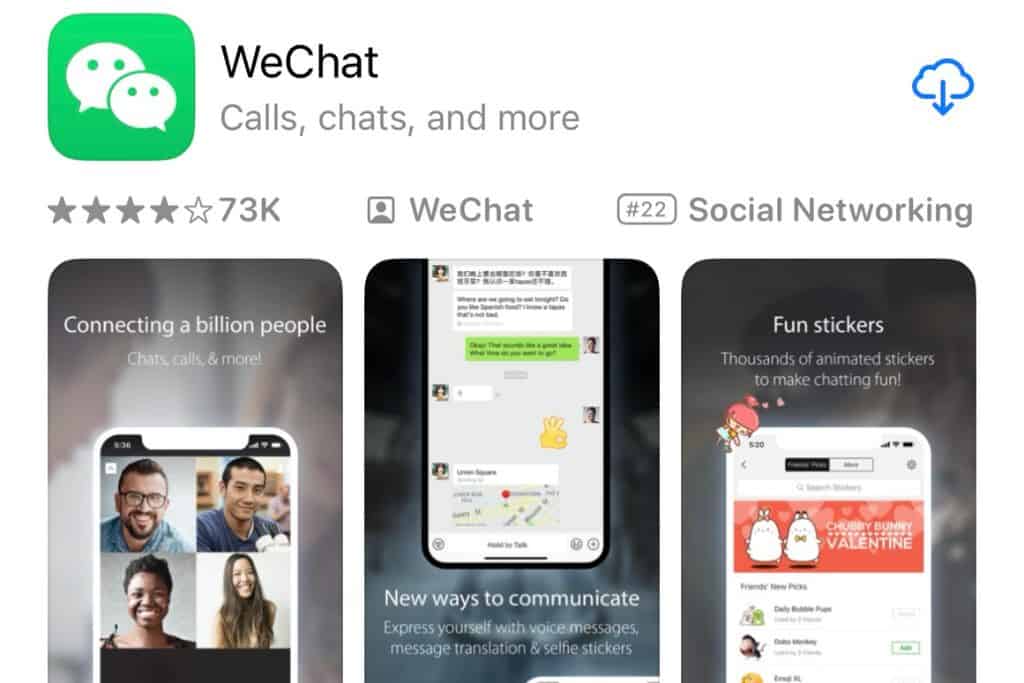
Here are a few things you can do with WeChat:
- Messaging: Text, voice, and video calls to stay in touch with people.
- Social Media: It has a “Moments” feature, where you can post updates, photos, and videos, similar to a Facebook feed.
- Payments: WeChat Pay lets you pay for things like meals, transportation, or shopping. It’s so widely used in China that many places only accept WeChat Pay or Alipay, and they might not take credit cards or cash from foreigners.
- Navigation: You can use it to call a taxi or use a ride-hailing service like Uber.
- Bookings: You can book hotels, flights, and train tickets directly within the app.
- Translation: It has built-in translation features, which are very handy for communication if you don’t speak Chinese.
When traveling in China, having WeChat is pretty much essential. Since it’s widely integrated into daily life, even for small things like scanning QR codes to get information or menus at restaurants, you’ll need it.
It’s also a great way to communicate with locals or businesses. People in China don’t typically use email for personal communication, and phone calls aren’t as common as messaging through apps like WeChat.
For foreigners, downloading WeChat before traveling to China is a smart move. Just make sure you set it up with your phone number while still outside of China because it’s easier to verify. It’s one of those apps that really makes traveling easier, especially for navigation, payments, and staying connected.
Sim Cards
One of the best tips for traveling to China is to get a SIM card once you arrive.
Make sure your phone is unlocked and compatible with China’s network (GSM-compatible, as China uses GSM for mobile communications). Most modern smartphones are.

Airports in major cities like Beijing, Shanghai, and Guangzhou have booths where you can buy SIM cards as soon as you arrive. This is one of the most convenient options since the staff is often experienced in helping foreigners.
You can also visit a mobile service provider’s official store in the city. You’ll need your passport for registration, as China has strict real-name registration laws for mobile phone users.
Some companies offer international SIM cards that can be used in China, but these are generally more expensive. Alternatively, you can buy a local Chinese SIM card from online stores before you leave the U.S., but you’ll still need to activate it in China.
American mobile companies also offer international plans. Make sure to check your plan carefully to avoid unexpected high charges when you return from your travels. I have traveled to China and used my T-Mobile plan quite successfully.
Your options include a tourist SIM for a short amount of time or a prepaid SIM. The best option depends on your specific situation.
Wi-fi in Many Places
Since the majority of Chinese use prepaid SIMS for their internet access, they are constantly trying to find free wi-fi wherever they go. This allows them to extend the life of their current plan for their cellphones. If they use the wi-fi of a restaurant or shop, then they wisely don’t waste their minutes unnecessarily.
Most restaurants and cafes have free wi-fi, so if you stop somewhere, make sure to ask if they have wi-fi for you to access.
Cultural Sensitivity Tips For Traveling to China
China is a country steeped in historic cultural heritage. If ever you are in doubt of what to do or how to do it, please be humble and ask a local or someone with more experience than you. It never hurts to ask.
Respect Traditions
Be respectful when visiting historical sites and temples. Avoid touching or pointing at religious artifacts.

Greetings and Manners
A simple nod or handshake is a common greeting. It’s polite to avoid loud and boisterous behavior in public places.
Gift Giving Tips for Traveling to China
If you’re invited to someone’s home, bringing a small gift is appreciated. Avoid giving clocks or sharp objects, as they can symbolize bad luck. Chocolates are a favorite gift and easy to find at most larger stores.
Food and Drink in China
China offers an incredible blend of history, culture, and natural beauty. Enjoy your travels and immerse yourself in the diverse experiences this country has to offer!
If you’d like to read more about China, check out these posts.
Is It Safe to Travel Around China?
Travel Visa to China - Which One Do You Need?
Navigating the Great Wall of the Work Visa in China
Canton Tower - A Symbol of Progress and Prosperity in Guangzhou
Zhujiang New Town - Where Culture, Commerce, and Cuisine Collide
Traveling Solo to Yangshuo China





